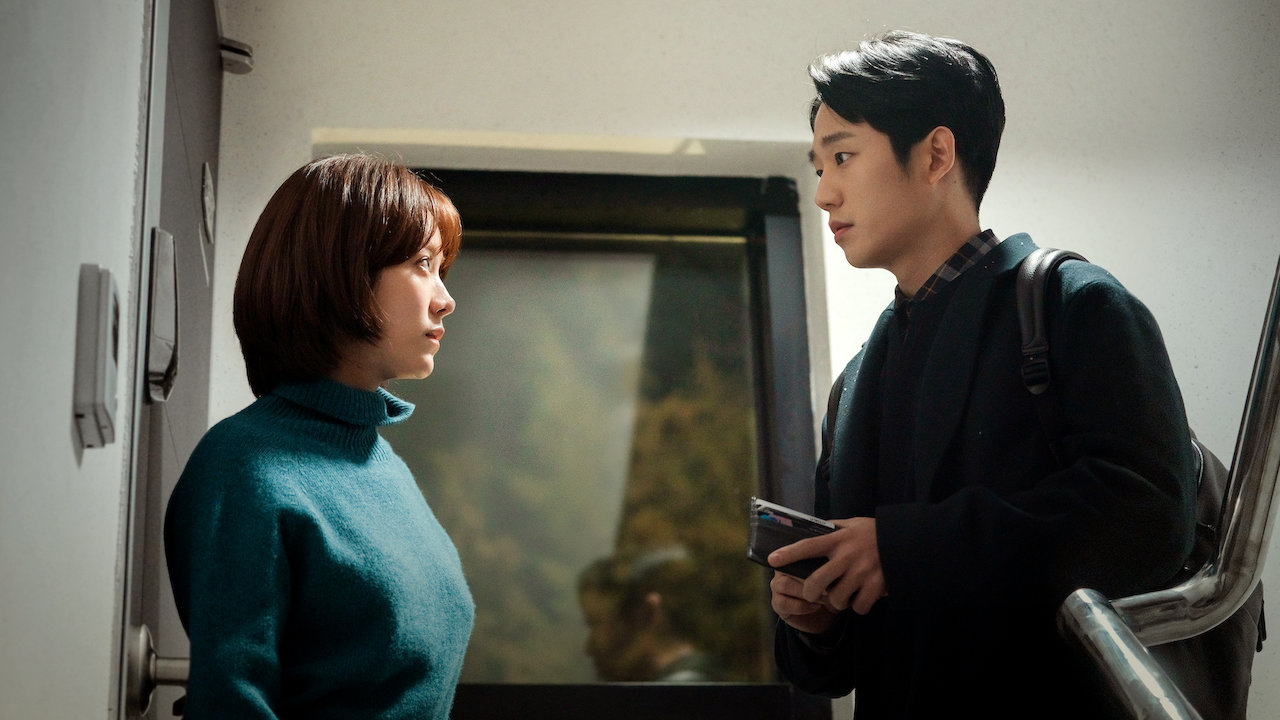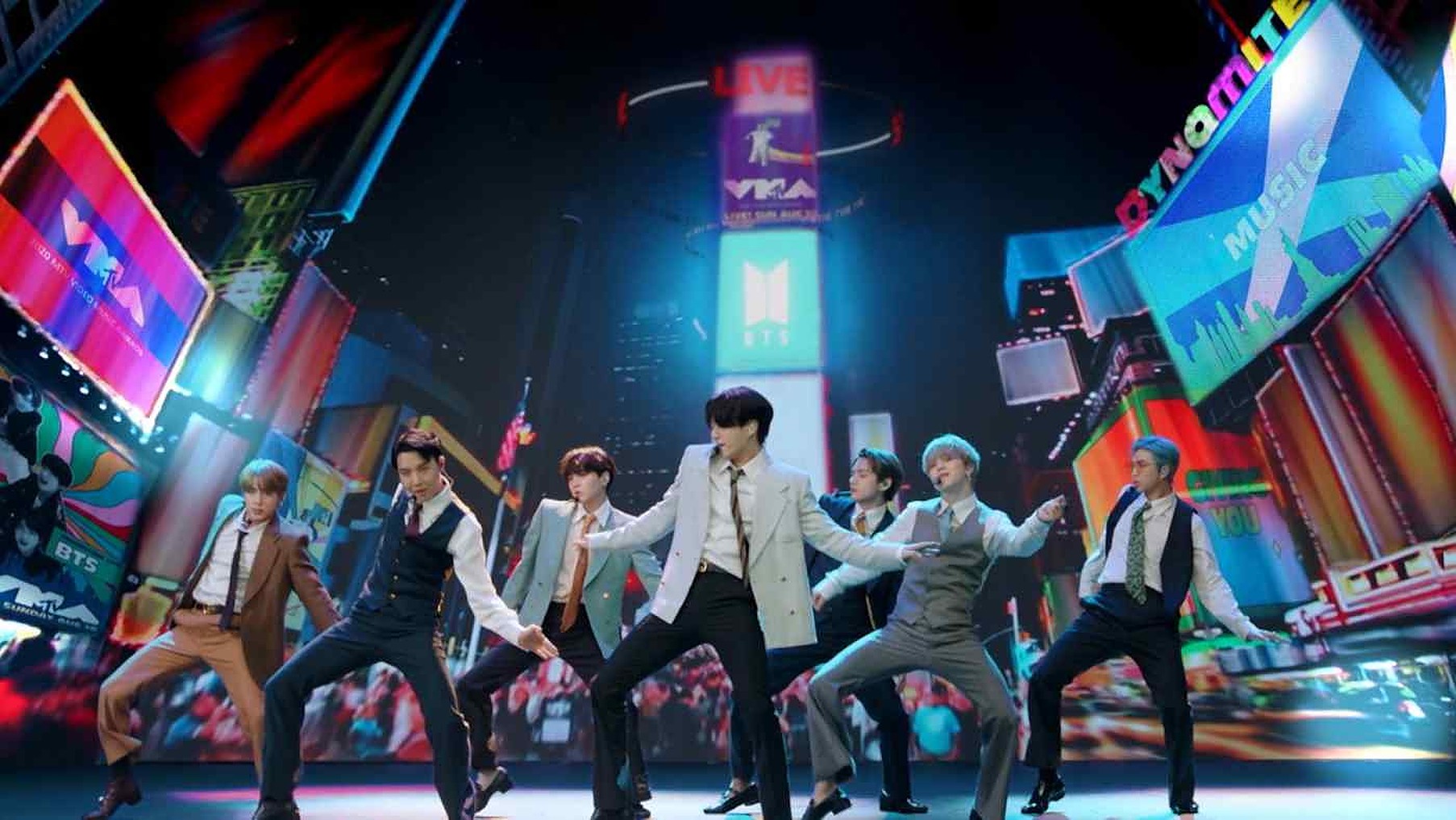They call it the rise of a new global culture. For the past few decades or so, Western music dominated our radio channels, pop culture and films, but the ‘Hallyu’, the global wave of love for Korean music, television and film, has taken Egypt by storm.
Many will remember that South Korean director Bong Joon-ho’s film Parasite became the first non-English language film to win best picture at the Oscars in 2019. Yet, international appreciation for South Korean culture has been growing for some time. K-Pop group ‘Wonder Girls’ first cracked the US Billboard Hot 100 chart with their hit “Nobody” in 2009, and, since then, South Korean artists have started to become increasingly popular, with acclaimed boyband BTS becoming the first K-Pop act to ever perform one of their own songs at the Grammy Awards in 2021.
The industry’s global outreach grew to amass $USD 5 billion of export revenues for South Korea’s economy, and Egypt has become a popular market. According to a Spotify statement in 2020, Egypt’s growth rate for K-Pop streaming was at 33 percent, followed by Vietnam at 30 percent, and France at 13 percent. Between 2014 and 2020, K-Pop’s global share of listening on Spotify rose to more than 1800 percent, and the official K-Pop playlist now has more than 2.4 million followers.

Alaa Mansour, assistant lecturer at Al Alsun Faculty at Ain Shams University and former lecturer at Egypt’s Korean Cultural Centre, with a Master’s degree in Korean languages, notes that the number of Egyptian students choosing to study the Korean language has significantly increased over the past few years, and explains that the rising interest is due to the ‘Hallyu’ wave.
“Hallyu, which is the term that refers to the growing popularity of Korean music, drama and films globally, has definitely helped spark an interest in Korean culture, and now Korean dramas can be found easily on Egyptian television. Today, I would also say that the massive popularity of BTS’ music globally has definitely helped expose more Egyptians to the Korean language and culture.”
Alaa also refers to South Korea’s economic boom and technological success in the last ten years as other main factors for its appeal.
“The way they brand their country to be very progressive and advanced in the modern world, particularly with technology and the economic boom, is the kind of success that also enthralls many Egyptians,” she says.
“They become attracted to the country itself because it is being marketed to them as a place that is very modern, technologically advanced, clean and also very cultural and captivating. In 2011, people used to ask me about the country and even where it is located, but today, they are asking me about how they can travel to South Korea and learn the language, so there’s definitely been a huge rise in interest.”
CULTURAL ALIGNMENT?
In Egypt, K-Pop is mostly popular amongst young women and teenage girls. Amongst them is Salma, a 24-year-old graduate of Alexandria University, who has been a die hard K-Pop fan for many years. Her first exposure to this culture came through watching Korean television dramas, and she discovered the musical genre a couple of years after. Fostering a love for all things Korean, the young university student plans to emigrate there to study.
According to Salma, the best thing about K-Pop is the songs’ meaningful messages behind the showbiz facade.
“So many songs in Egypt are only about love and breakups, but I feel that K-Pop songs address more ‘real’ topics. They talk about depression, failure, success, family, rejection – I feel like I can relate to these things. Listening to the songs is like talking to someone about my own life, and it feels like I’m not alone in this world. These are the kinds of songs I want to hear. It’s not cheesy music, like some songs from Egypt and America.”
She puts most of K-Pop’s popularity in Egypt down to the power of viral internet trends, but believes that there is a cultural alignment between Egypt and many East Asian countries.
“They are similar in some ways – both are conservative, and in both societies, young people struggle to find independence away from their families.”
Georgia, a 21-year-old British student and K-Pop fan studying in Cairo, has also noted such cultural similarities from her experiences living in Egypt and exploring K-Pop and South Korean culture. “The image of a K-Pop idol is quite conservative,” she explains.
“The management teams of K-Pop groups don’t let them smoke, drink or date. It seems similar to conservative values in parts of Egyptian society. Young people might want to look up to people who aren’t dating or in relationships, living in a relatively conservative society like them – maybe it resonates.”
This potential cultural connection is also evident from the popularity of East Asian culture amongst young Egyptians. Georgia mentions that many of her K-Pop obsessed Egyptian friends choose East Asian studies at University, and often learn other languages from the region, such as Chinese.
In March 2021, the South Korean Ambassador to Egypt Hong Jin-Wook praised Ain Shams University’s Korean language department, which was the first of its kind in the Middle East and Africa region, and noted the continual stream of students opting to study this programme, reports Daily News Egypt.
THE ‘GODS’ OF CULTURE MARKETING
Nourhan was only 12 years old when she was sucked into K-Pop and South Korean entertainment, which, back then, was still not as popular as it is today.
“There were a few Korean dramas that used to air on Egyptian television, but back then [2009] it was still relatively unknown. I realized that Korean drama was very peculiar and unique, it is almost like a fantasy world and it pulls you in. It is nothing like the movies or music of Hollywood – it has its very own signature style,” she tells Egyptian Streets.
Bringing Korean culture to Egyptian audiences in a way that connects with their culture and values helped spark the Korean wave in Egypt, Nourhan adds.
“They were able to market and connect with the Egyptian public, particularly through discussing topics that are popular among Egyptian families, like infidelity. They are conservative like the Egyptians, and they are not like the Europeans in terms of the family structure as well, so they put emphasis on values and principles. Their stories are also very relatable. It wasn’t as commercial before as it is today, so back then they would share their culture through their drama and entertainment, which is sort of similar to Egyptian dramas because we also like to integrate our culture in our films.”
Described as the ‘God of Culture Marketing’, as writer and content strategist Abhik Choudhury says in his article, South Korea’s clever integration of Korean culture with global influences helped market the ‘Korean brand’ to many Egyptian youth like Nourhan, and which exposed many Egyptians to more than just their drama and entertainment, but also the Korean language, history and culture.
“Since I used to watch many Korean shows, I began to easily pick up the language, and so I decided that I wanted to learn the language itself. I know many people in my faculty that also chose to learn the Korean language due to their exposure to K-Pop and Korean drama,” Nourhan adds.

In her third year at the faculty of Al Alsun, Ain Shams University, Nourhan was chosen among the top students to travel to South Korea and study the language, where she was able to immerse herself in the Korean culture and experience.
“Many Egyptians that I know from my faculty now also live in South Korea and have truly integrated with the culture. As Egyptians, I find that we are more open to discovering different cultures and languages, and I think that also explains why the Korean wave was able to spread here so quickly. It became more than just about the music or the drama, but about the culture,” she says.
“Being exposed to South Korea’s culture impacted me in so many ways as well; I’ve started to get into filmmaking because I was very inspired by them, and their work ethic is also embedded in my personality as well.”
While K-Pop is often known to be popular among the youth, its influence has spread to other generations as well. Renowned Egyptian actor Mohamed Henedy expressed his love for the genre on Facebook
“K-pop is a great genre of music and it’s not only aimed at youth, there are also older people like me who listen to BTS,” said Henedy in a post.
RISING K-POP FANDOMS
Fans such as Salma and Georgia are part of the wider K-Pop ‘fandom’, a social media phenomenon where many individuals with the same common interest form an online community. Sola, who is 22 and studies at Alexandria University, and Alaa, who is 25 and is currently a teaching assistant at the same university, launched the Facebook fanpage “Eagle Egyptian Army” in 2019 to express their admiration for famous boyband BTS. Similarly to Salma, they feel a deep connection to K-Pop that goes beyond simply enjoying how it sounds.
“For us, BTS is not just a boyband. All of their songs carry meaning and purpose that connect with us, and actually inspire us, with lyrics that usually revolve around self-love, confidence and strength,” Sola says. “We feel really connected to it, but we also don’t allow this to diminish our own connection with Egyptian culture.”
The power of the K-Pop fanbase is seen through their energy and determination online; they organize several fan events and raise donations for social causes collectively, most recently donating EGP 4000 for Misr El Kheir Foundation, a not-for-profit organization in Egypt, in celebration of a K-Pop idol’s birthday. This is part of the ‘One in an ARMY Charity Project’, which is a global monthly charity project by fans of BTS and is encouraged by the boyband itself to fund social causes around the world.
However, being part of the large fanbase doesn’t simply revolve around organizing fan events or celebrating performances, but also learning more about different cultures and languages.
“Whether it is Korean through listening to the music or their English has improved because most of the songs or the programs only have English translation in order to understand it,” Sola explains.
This powerful obsession with Korean culture amongst not only Egyptians, but across the globe, has come as a surprise to many. What at first started out as a few young Egyptians stumbling across elements of Korean culture in the late 2000s has now become a widespread phenomenon, with countless numbers of the Egyptian youth part of the online K-Pop community. It’s clearly more than just enjoying a genre of music – it’s a lifestyle, and its popularity is still skyrocketing.






Comments (6)
[…] interest in K-Pop and K-Drama recently peaking, fans grew curious to try the food they recognized from that media, such as ‘Tteok-bokki,’ […]
[…] Crossing Cultures: How K-Pop and Korean Drama Took Egypt By Storm […]